Lastovo Island of Stars Project Being Revived with Astronomical Activities
February 22, 2021 – The Croatian Astronomical Union is reviving the project "Lastovo Island of Stars" by measuring the night sky quality and organizing astronomical activities for citizens and tourists.
After ten years, Dorian Božičević, Secretary-General of the Croatian Astronomical Union, visited Lastovo again. Together with Diana Magdić, Deputy Director of the Lastovo Tourist Board, at whose invitation he arrived, they visited potentially interesting Lastovo locations for astronomical observations and the installation of cameras to monitor Croatian, i.e., the Global Meteor Network's meteors.
Lastovo – Croatia's next dark sky park?
For Lastovo to apply for the International Dark Sky Park status, they agreed on further cooperation to start measuring the night sky quality. Besides, they decided to organize astronomy activities for citizens, tourists, and children.
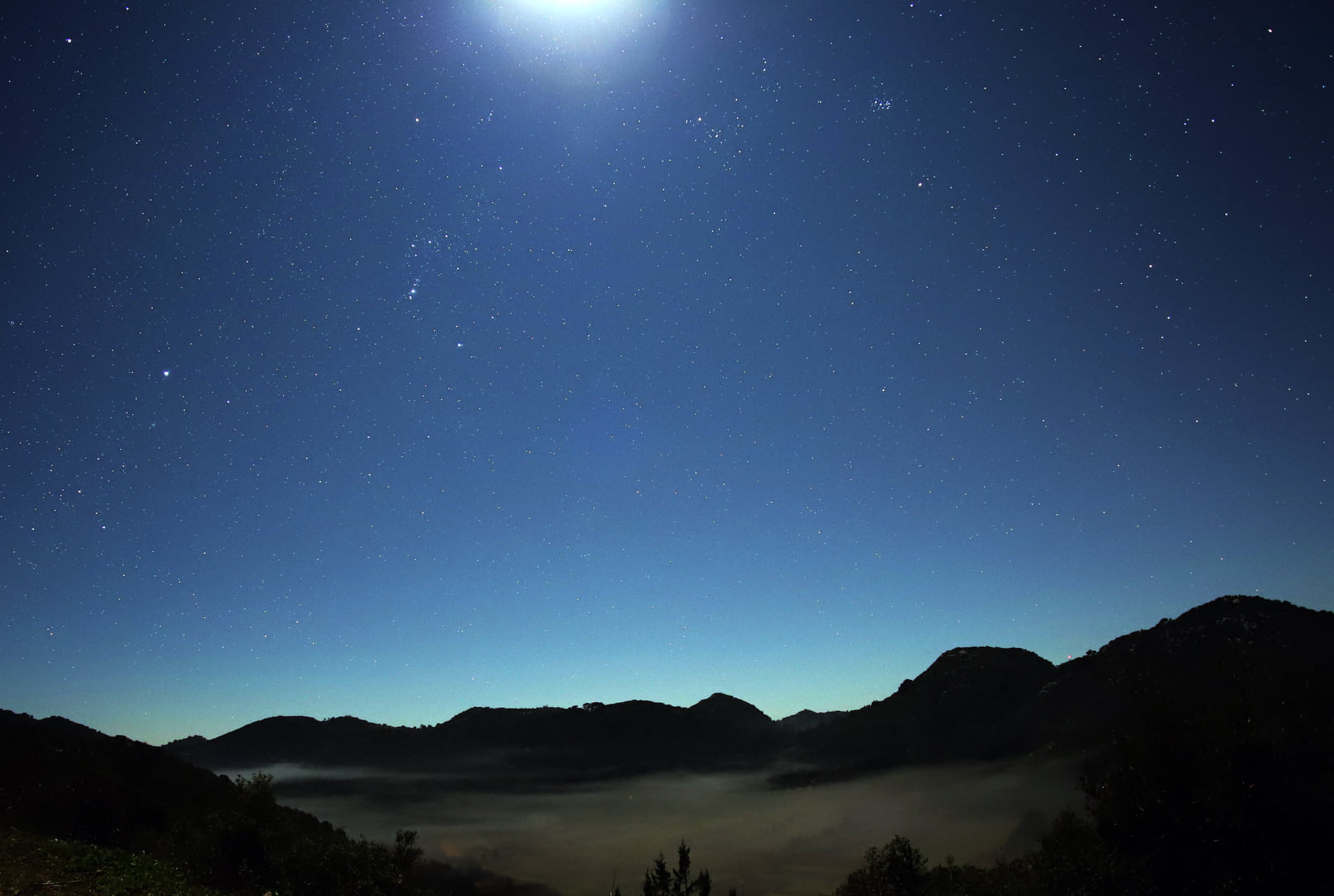
Winter sky over Prgovo / Dorian Božičević, Lastovo Tourist Board
By official definition, the dark sky park label is awarded to protected nature areas with extremely dark skies full of stars. Two places in Croatia hold this label – Petrova Gora in Banovina and Vrani Kamen on Papuk. Also, Jelsa on Hvar is well on its way to becoming the third dark sky park in Croatia, and it seems like Lastovo could potentially be the fourth.
Božičević and Magdić hope for the cooperation of all institutions on the island so that the project "Lastovo Island of Stars" really comes to life. They also plan to hold a meeting with the Lastovo Islands Nature Park's representatives and the Municipality of Lastovo.
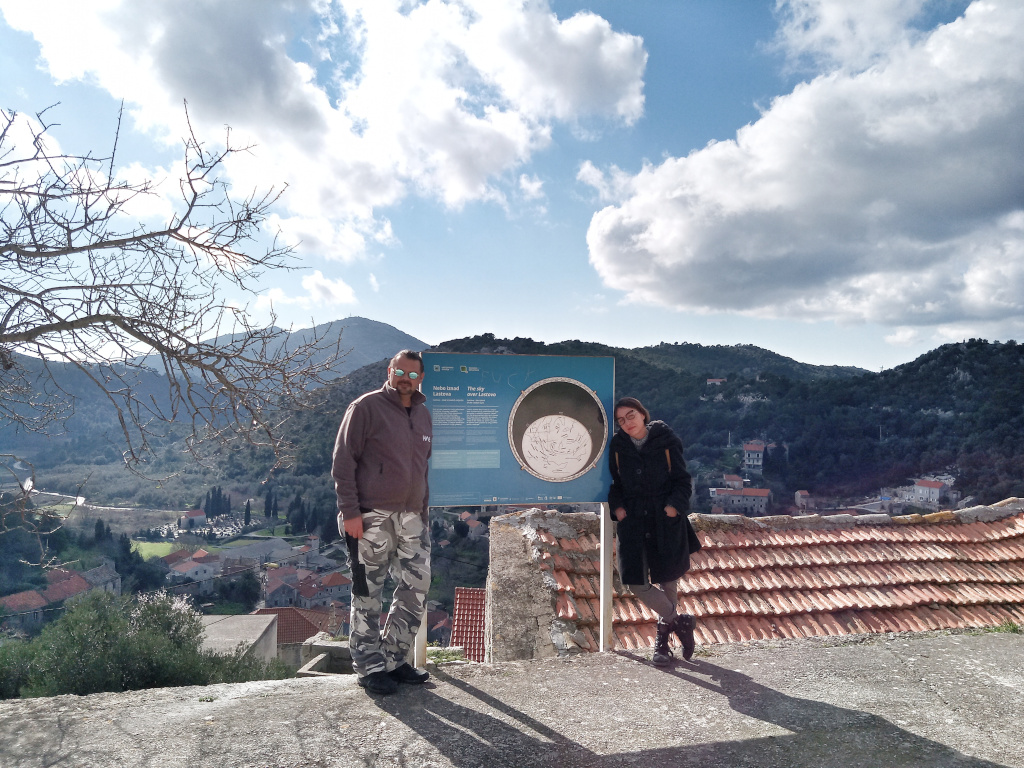
Dorian Božičević and Diana Magdić with a rotating map of the sky in Lastovo / Croatian Astronomical Union
Their goal is to bring astronomy to life in Lastovo's tourist offer and to ensure continuous extracurricular activities in astronomy for children and youth.
First Croatian municipality with ecological lighting
The Croatian Astronomical Union recalled that from 2008 to 2010, the International Conference on Dark Sky Parks had been held in Lastovo. However, due to a lack of financial resources and some other circumstances, the project stalled with development.
At that time, Lastovo began the reconstruction of public lighting. Little is known that Lastovo was the first local government in Croatia with completely ecological lighting, even before the adoption of regulations on protection against light pollution.
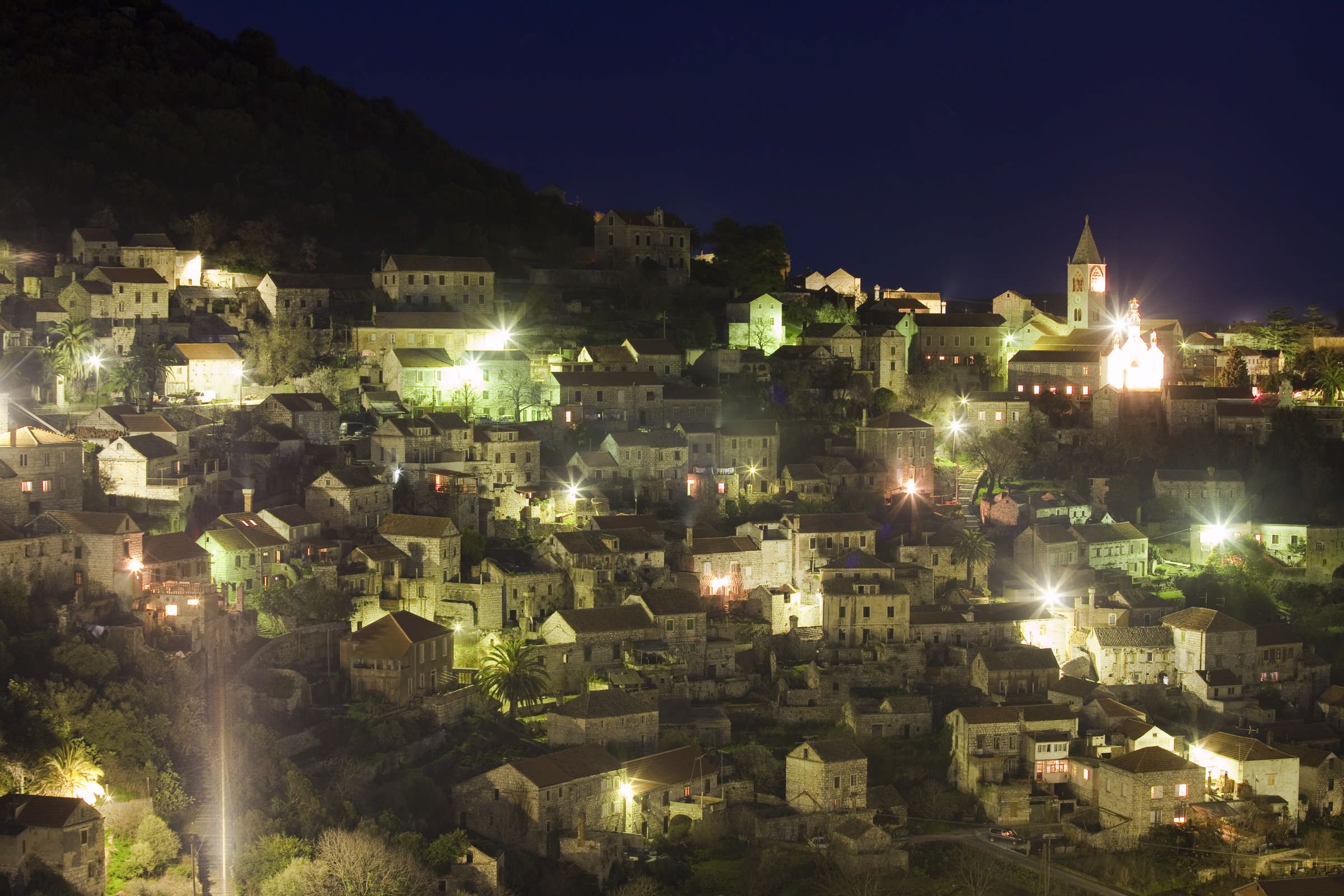
Lastovo / Romulić and Stojčić
In 2010, a workshop in astronomy for elementary school students was organized on Lastovo. Then, the initiative for the establishment of the astronomical society Lastovo was also launched, as well as the initiation of the International Dark Sky Park proclamation.
Stargazing as a symbol of Lastovo
Lastovo is the most distant inhabited Croatian island, and thanks to the distance from the mainland and pollution, stargazing here leaves you breathless.
The town of Lastovo, also the only settlement on the Lastovo island, is an old medieval settlement rich in history. Hills surround it with amazing views of the surrounding fields and the crystal clear sea. In addition to the dark Lastovo sky, the symbol of Lastovo are the richly decorated chimneys, the so-called "fumari," which adorn Lastovo's family houses from the 15th and 16th centuries.
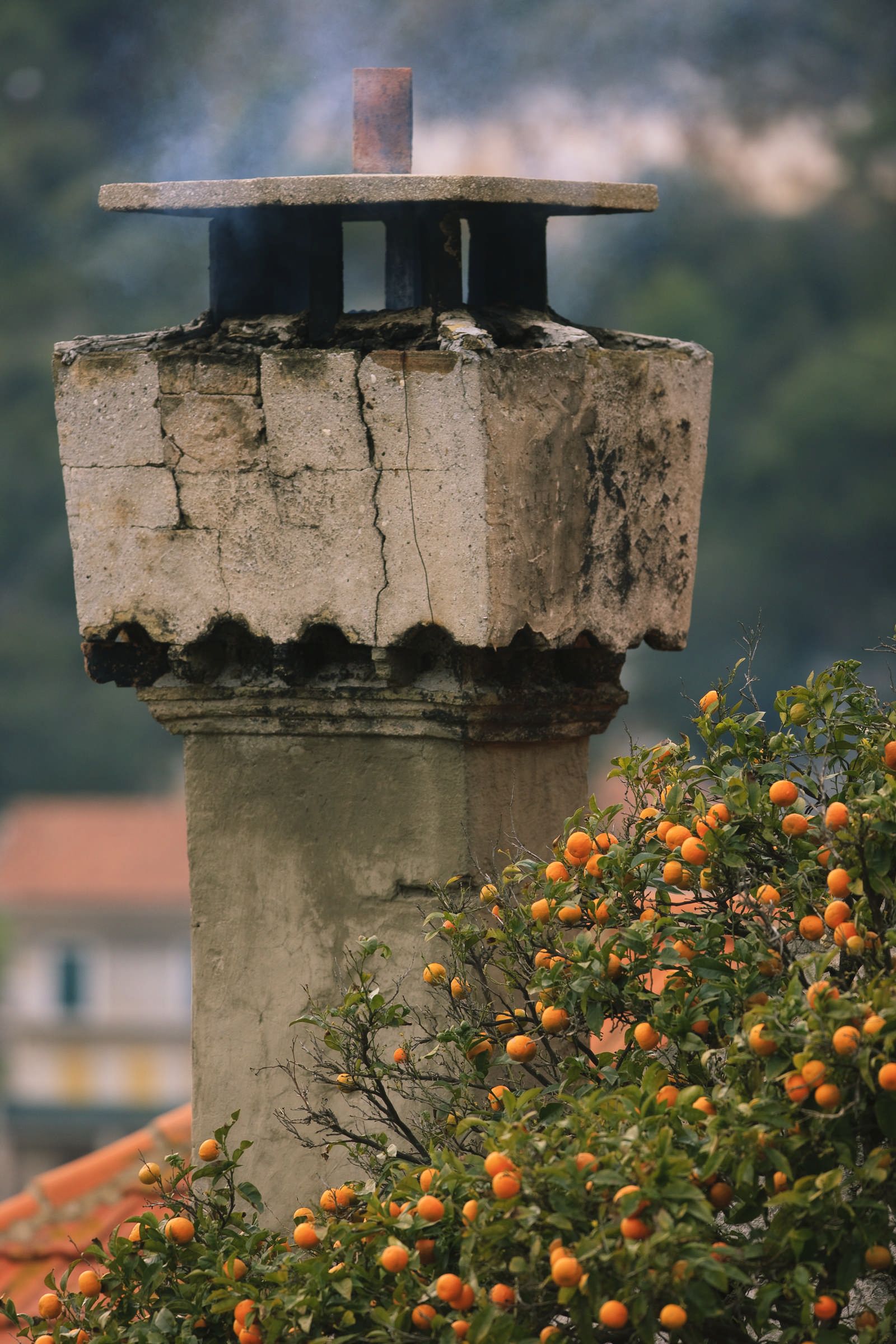
Lastovo's chimney - "fumar" / Romulić and Stojčić
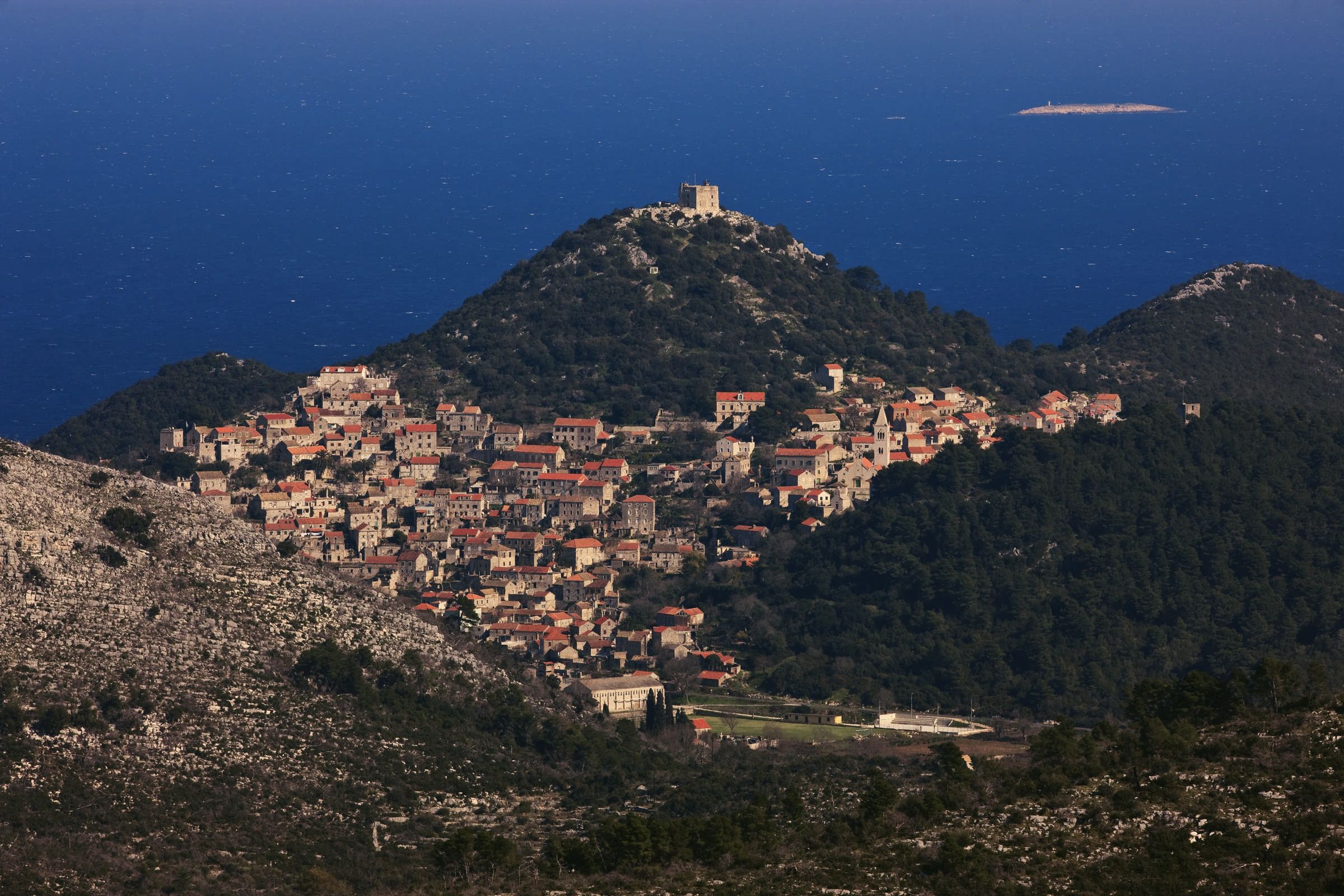
The town of Lastovo / Romulić and Stojčić
For the latest travel info, bookmark our main travel info article, which is updated daily.
Read the Croatian Travel Update in your language - now available in 24 languages.
Lastovo is a Hit! Families and Entrepreneurs Want to Live Here
November 16, 2020 – Despite the ongoing coronavirus pandemic, when tourism and business are significantly affected industries, one Croatian island is gaining popularity in both. Lastovo is a hit.
As Slobodna Dalmacija reports, the island of Lastovo is still a corona-free zone, they had a great tourist season this year, and a baby boom. However, as if those were not compelling enough reasons, in the last two months, Lastovo has recorded the interest of several families with children who would like to settle on the island.
And not only families, but on this Dalmatian island, a few hours away from Split by ferry, several entrepreneurs are interested in starting their own business. This story is confirmed to Slobodna Dalmacija by 26-year-old Don Tonći Ante Prizmić whose arrival on the island, in his first parish, coincides with this interesting and unusual phenomenon.
Why do people want to come to Lastovo? Well, the reason is simple. Besides the favorable conditions, the Church on this island continues to lease agricultural land for ten lipas per square meter. The only condition is that you must stay on the island. In the new normal, some see it as a ticket to a better tomorrow.
Because of that, and also because of the church's million square meters of land, the sum of numerous Lastovo fields, and cheap fertile soil – Lastovo is a hit.
"I agree, Lastovo is a hit. And I am so pleasantly surprised that coming to my first parish accompanies me with such good stories," says Don Tonći, continuing with a story about a family from Imotski who first came on vacation on Lastovo, but then fell in love so much that they expressed a desire to move here and engage in agriculture.
"I asked him if he knows how far we are from the mainland and what our ferry lines are. And he said he knows everything, but that they are serious. The only problem is that it is difficult to buy or rent a house on the island due to unresolved property relations. And there are a lot of houses. But they have a solution for that as well. They say they would put a container on the ground first hand. I told them then to come," says don Tonći.
'We wanted to give people a chance'
Other people also called, mostly young families from the area of Kaštela, Split, Dubrovnik, and even from Zagreb. This was followed by several calls from those who would grow lavender, essential plants, produce oils, and open a healthy pharmacy on church land.
Don Tonći opened the door to everyone, happy that on the island from which the youth must move to the mainland to continue their education, the new youth wants to settle. Lastovo, with its 46 green islands and 46 fields, has many church plots where a lot can be grown.
"We are happy that people are calling us and want to come. The price is not commercial because we wanted to allow people to cultivate the land. It began with the blessing of the bishop, and as we now await the new one, we will acquaint him right away with this noble idea. We have vineyards, pastures, fields, forests, all in different sizes. The problem is that they are not in one plot. Some land plots are 20, 50 meters, and more apart. But it is always possible to arrange a lease with one of the owners so that consolidation can be done. This island is beautiful. The truth is, we are a little further from the mainland. To get to Split, you have to get up at three in the morning to catch the ferry. But it has its charms," Don Tonći considers.
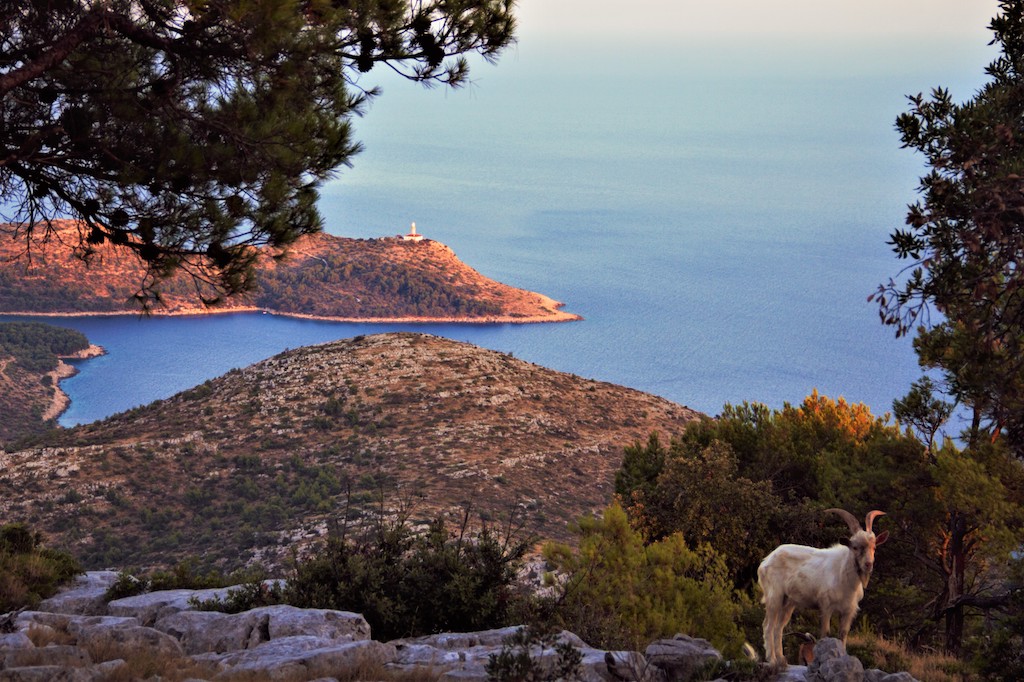
The island of Lastovo / Sara Alduk
Don Tonći is a native of Dubrovnik, and on all of the island, as he jokingly likes to say, he is the only spiritual authority. When he got his first parish, St. Kuzma and Damjan on Lastovo, at first it was a small shock, but he adjusted very quickly. He says that the local people are very open, noble, atypical islanders. They are so strongly attached to each other that an island of 760 inhabitants seems like one big family caring for its members.
"And that's why the interest of those who would like to come here surprised me so pleasantly. I openly showed them what we have – plots of a few hundred to a few thousand square feet, vineyards just waiting for hardworking hands. There are no problems with irrigation either because the dew and nature here do the work themselves. There is a lot of lands, and the locals from Lastovo also rent it. The soil is fertile, soft, well, and gives excellent fruit. We offer you a welcome, so come," says Don Tonći.
Lastovo Statute
Don Stipe Miloš, a former Lastovo priest, explained to Slobodna Dalmacija where the Church got so much land from.
The church land is connected to the Lastovo Statute from the 14th century, according to which each family was obliged to give one-tenth of its annual income to the parish. A third of it went for the needs of the parish, another third as a salary for the pastor. And the third was used for the education of priests. In the 700 years that the Statute has been respected, a lot of lands have accumulated, but also the Lastovo youth has been ordained. And a good part of the estate came through the foundations of fraternities such as Our Lady of the Rosary, the fraternity of St. Anthony, and the fraternity of St. Peter.
To read more about lifestyle in Croatia, follow TCN's dedicated page.


